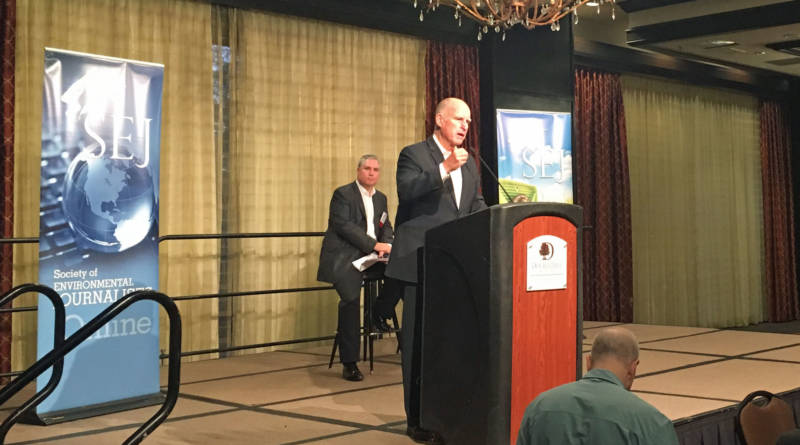Governor Jerry Brown says he will continue to push California’s climate change policies, no matter the results of November’s presidential election.
“I would do what I’m doing now,” he said, speaking in Sacramento at the Doubletree Hotel on the opening night of the Society of Environmental Journalists conference, an annual meeting attended by more than 300 journalists from around the country this year.
Brown, who has made climate change a centerpiece of his final term as governor, touted the group of climate change bills signed over the last month, including SB32, which set a new climate change agenda for California. It requires the state to cut greenhouse gas emissions to 40% below 1990 levels by 2030.
That will mean tougher rules for factories and power plants and an ongoing expansion of solar, wind and other green energy. The bill recently passed the state legislature after a contentious debate.
“California has goals,” Brown said. “They’re steep and they’ll get steeper as we go down the road. We need technology, the investment and the understanding, and that’s where journalism comes in.”
